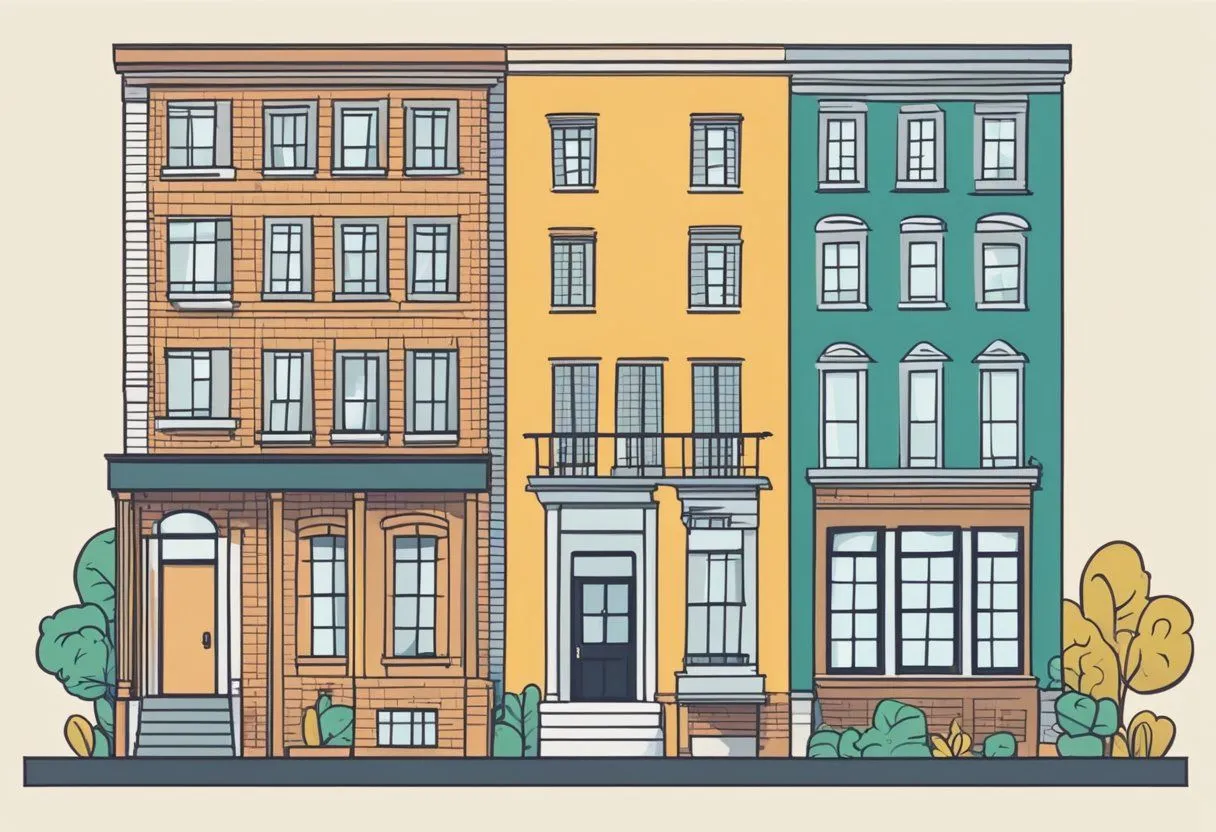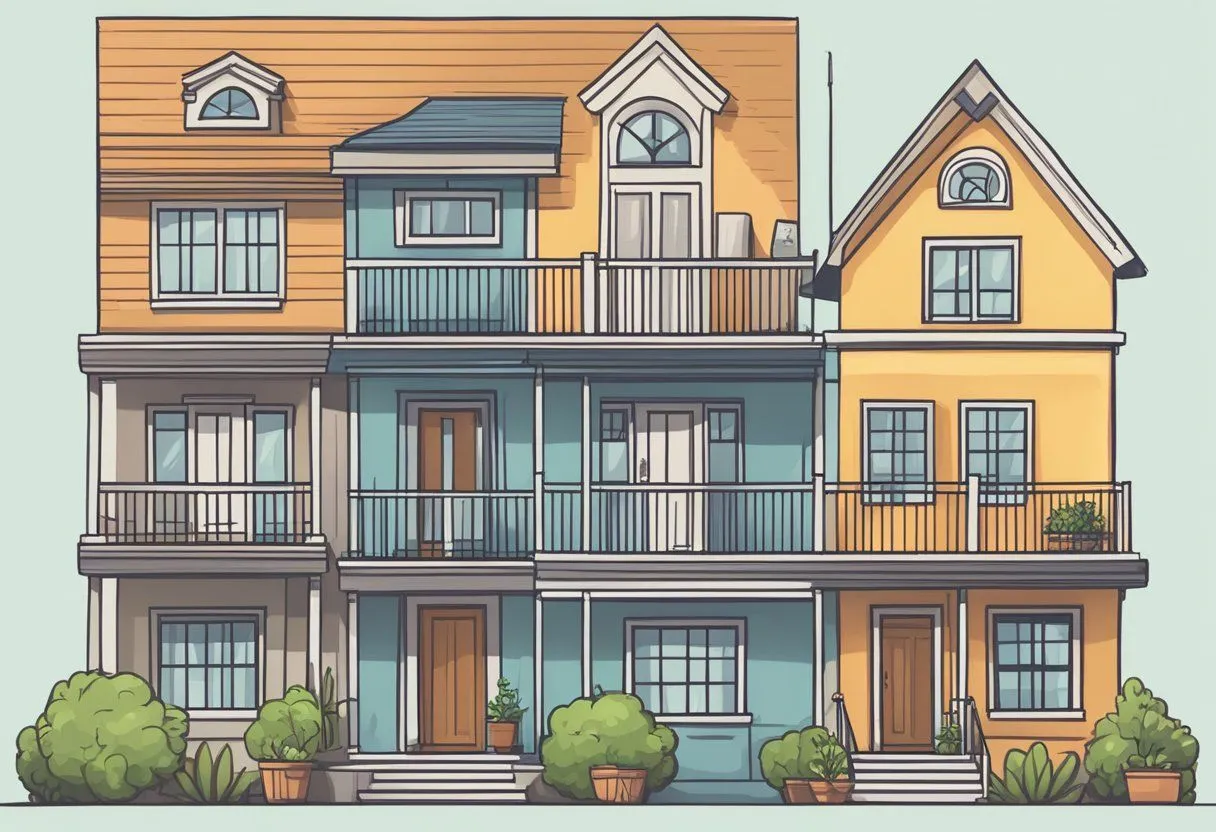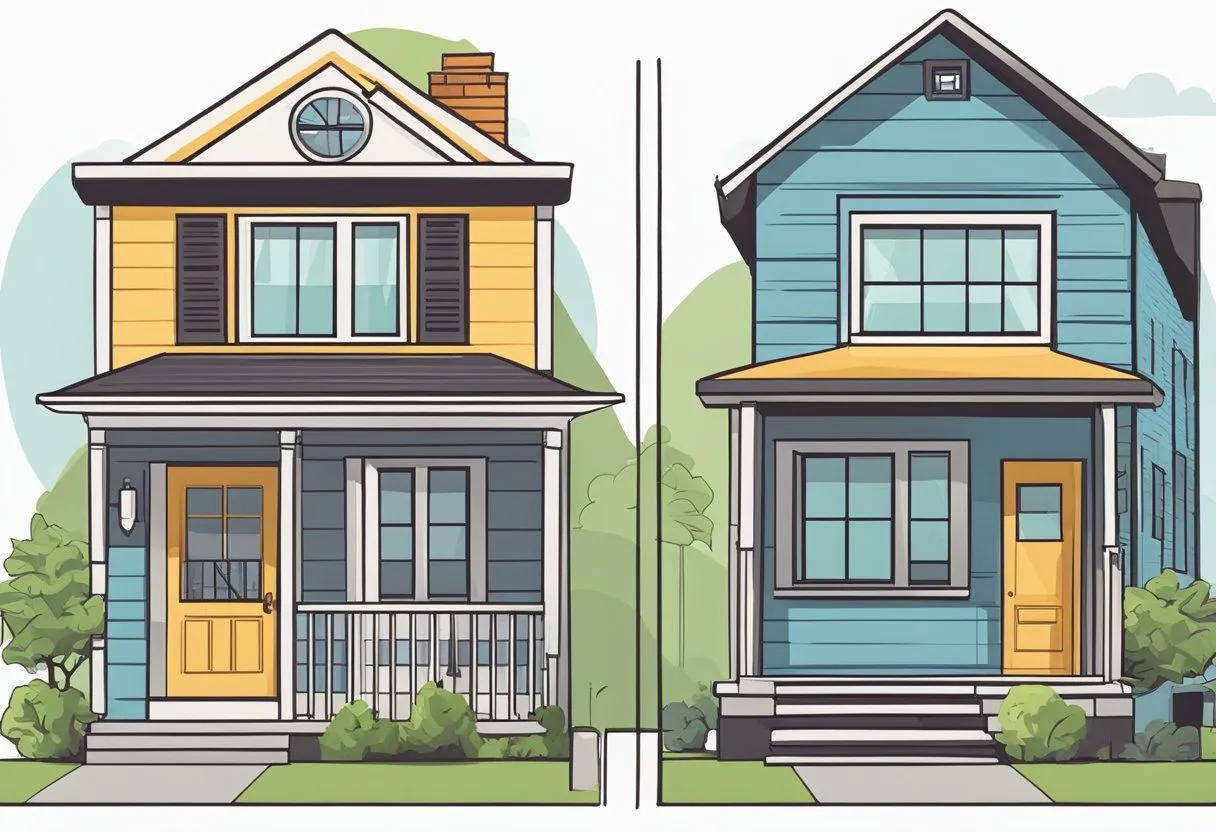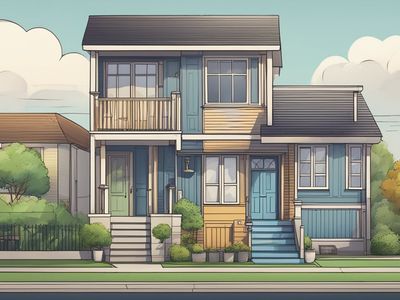Homeownership vs. Renting: The Pros and Cons Explained
When it comes to finding a place to live, there are two main options: renting or owning a home. Each option has its own set of pros and cons, and it’s important to weigh them carefully before making a decision.
On one hand, renting offers flexibility and lower upfront costs. Renters can move more easily and don’t have to worry about maintenance or repairs. Additionally, they don’t have to worry about property taxes or homeowner’s insurance. However, renters are subject to the whims of their landlords and may not be able to make changes to the property without permission. They also don’t build equity in the property and may face rent increases over time.
On the other hand, owning a home offers stability and the potential for long-term financial gain. Homeowners can make changes to the property as they see fit and don’t have to worry about rent increases. Additionally, they build equity in the property over time and may be able to sell it for a profit. However, homeowners are responsible for maintenance and repairs, as well as property taxes and homeowner’s insurance. They also have less flexibility to move if they need to.
Ultimately, the decision to rent or buy a home depends on individual circumstances and priorities. This article will explore the pros and cons of each option in more detail, to help readers make an informed decision about which option is right for them.
Understanding Homeownership

Homeownership is the state of owning a home or property. It is a long-term financial commitment that requires a significant amount of money, time, and effort. Understanding the pros and cons of homeownership is essential for anyone considering buying a home.
Advantages of Homeownership
There are several advantages to owning a home. One of the most significant benefits is the potential for equity growth. As the value of the property increases, so does the homeowner’s equity. This equity can be used to secure loans or lines of credit, or it can be cashed out when the property is sold.
Homeownership also provides stability and security. Renters are at the mercy of their landlords, and they can be forced to move out at any time. Homeowners, on the other hand, have control over their living situation and can make changes to their property as they see fit.
Another advantage of homeownership is the tax benefits. Homeowners can deduct mortgage interest, property taxes, and other expenses on their tax returns, which can result in significant savings.
Disadvantages of Homeownership
While there are many advantages to owning a home, there are also several disadvantages. One of the most significant disadvantages is the cost. Homeownership requires a significant upfront investment, and ongoing costs can be high. Homeowners are responsible for all repairs and maintenance, which can be expensive.
Another disadvantage of homeownership is the lack of flexibility. Homeowners cannot simply pick up and move if they need to. Selling a home can take time and can be costly, and homeowners may be forced to sell at a loss if the market is not in their favor.
Finally, homeownership carries a significant amount of risk. The value of a property can fluctuate, and homeowners can lose equity if the market takes a downturn. Additionally, homeowners can be at risk of foreclosure if they are unable to make their mortgage payments.
Overall, homeownership is a significant financial commitment that requires careful consideration. While there are many advantages to owning a home, there are also several disadvantages. Anyone considering buying a home should carefully weigh the pros and cons before making a decision.
Exploring Renting

Renting is a popular option for those who want a place to live but don’t want the commitment of homeownership. Renting offers a variety of benefits and drawbacks that should be considered before making a decision.
Benefits of Renting
One of the main benefits of renting is the flexibility it offers. Renters can easily move to a new location without having to worry about selling a property. This is especially useful for those who need to relocate frequently for work or other reasons.
Another benefit of renting is that it often includes amenities that would be expensive to own, such as a pool or fitness center. Additionally, renters are not responsible for maintenance or repairs, which can save a lot of time and money.
Drawbacks of Renting
One of the biggest drawbacks of renting is the lack of control over the property. Renters may not be able to make changes to the property without the landlord’s approval, which can be frustrating for those who want to make their living space their own.
Another drawback of renting is the lack of investment potential. Renters do not build equity in the property, which means that they are not building wealth through homeownership.
Overall, renting can be a good option for those who value flexibility and convenience over long-term investment potential. However, those who are looking to build wealth through homeownership may want to consider purchasing a property instead.
Financial Implications

One of the most significant factors to consider when deciding between homeownership and renting is the financial implications. Here are some pros and cons of each option:
Homeownership
- Building Equity: With each mortgage payment, homeowners build equity in their property, which can be used as collateral for future loans or investments.
- Tax Benefits: Homeowners can deduct mortgage interest and property taxes on their income tax returns, potentially reducing their tax burden.
- Appreciation: Real estate values tend to appreciate over time, which can result in significant gains for homeowners who sell their property.
- Upfront Costs: Homebuyers typically need to make a down payment of at least 20% of the purchase price, which can be a significant financial burden.
- Maintenance Costs: Homeowners are responsible for all maintenance and repair costs, which can add up quickly.
- Market Risk: Real estate values can decline, and homeowners may be forced to sell their property for less than they paid for it.
Renting
- Low Upfront Costs: Renters typically only need to pay a security deposit and first month’s rent, making it a more affordable option for those who don’t have a lot of savings.
- No Maintenance Costs: Landlords are responsible for all maintenance and repair costs, which can save renters a significant amount of money.
- Flexibility: Renting allows individuals to move more easily, which can be beneficial for those who need to relocate frequently for work or personal reasons.
- No Equity: Renters do not build equity in their property and do not have the option to use their property as collateral for future loans or investments.
- No Tax Benefits: Renters cannot deduct any housing-related expenses on their income tax returns.
- Rent Increases: Renters are subject to rent increases at the end of their lease term, which can make it difficult to budget for housing expenses.
Making the Decision
When deciding whether to buy a home or rent, there are several factors to consider. Here are a few key points to keep in mind:
- Financial situation: The decision to buy a home or rent often comes down to financial considerations. Homeownership can be more expensive upfront due to the down payment and closing costs, but over time, owning a home can be more cost-effective than renting. Renting, on the other hand, can be a more affordable option for those who are not yet financially stable enough to buy a home.
- Lifestyle: Lifestyle is another important factor to consider when deciding between buying and renting. Owning a home provides more stability and control over the living space, while renting offers more flexibility and mobility. Those who value stability and long-term investment may prefer homeownership, while those who prioritize flexibility and mobility may prefer renting.
- Maintenance and repairs: Owning a home comes with the responsibility of maintenance and repairs, which can be costly and time-consuming. Renting, on the other hand, typically includes maintenance and repairs as the landlord’s responsibility. Those who are not handy or do not have the time or money to maintain a home may prefer renting.
- Market conditions: The housing market can also play a role in the decision to buy or rent. In a buyer’s market, where there are more homes for sale than buyers, it may be a good time to buy a home as prices are typically lower. In a seller’s market, where there are more buyers than homes for sale, it may be more difficult to find an affordable home, making renting a more attractive option.
Ultimately, the decision to buy a home or rent depends on individual circumstances and priorities. It is important to carefully consider all factors before making a decision.



